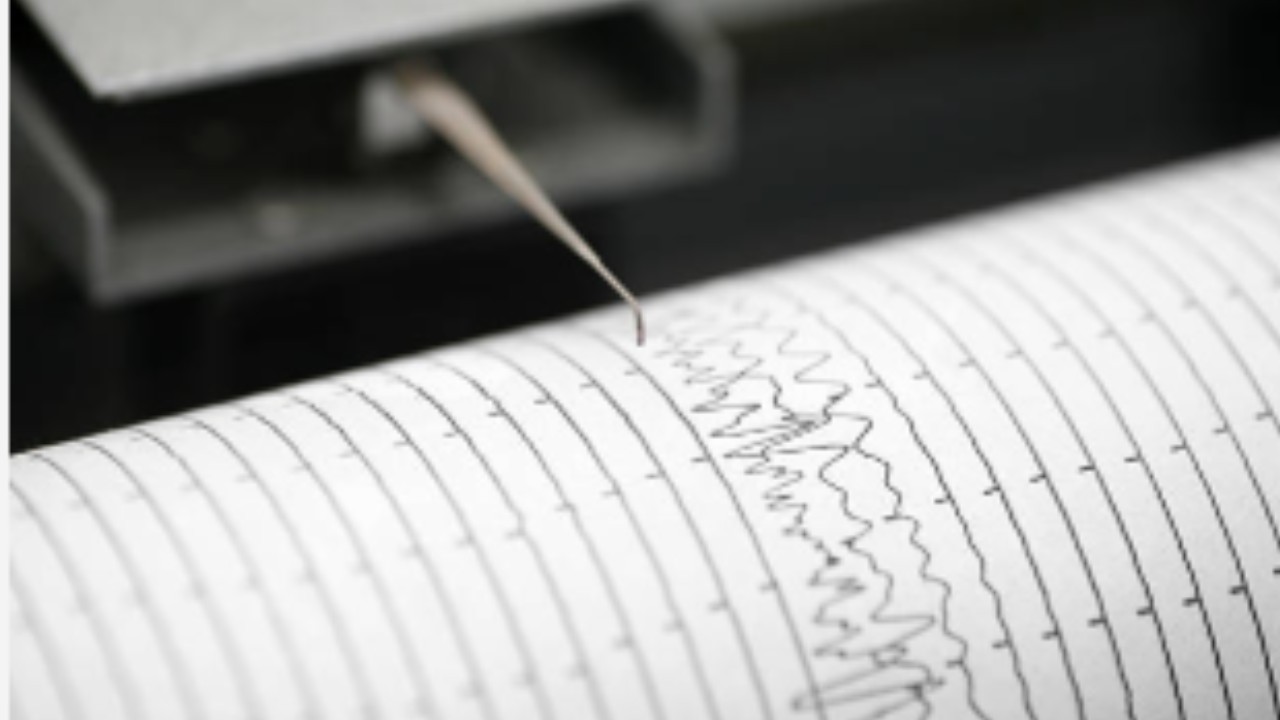
Telangana jolted by 5.3 magnitude earthquake, strongest in decades; Why are quakes rare here? (freepik)
Telangana: Residents of the Mulugu area in Telangana experienced an unexpected awakening on the morning of December 4, 2024, as a 5.3 magnitude earthquake jolted the region at approximately 7:27 a.m. The quake struck at a depth of 40 kilometers, according to the National Center for Seismology (NCS). This seismic event is notable as it represents the second-largest earthquake in Telangana in the past 55 years, with the epicenter located near the Godavari riverbed, about 200 kilometers from Hyderabad, the state capital.
The tremors were felt widely across several districts in Telangana and Andhra Pradesh, extending even to neighboring states such as Chhattisgarh and Maharashtra. Reports indicated that residents in areas like Warangal experienced brief but noticeable shaking, with ceiling fans swinging and items falling from shelves.
Retired scientist Purnachandra Rao from the National Geophysical Research Institute (NGRI) highlighted that significant earthquakes, particularly those exceeding a magnitude of five, are rare occurrences in both Telangana and Andhra Pradesh. He recounted a previous incident in 1969, when a 5.7 magnitude earthquake was recorded in Bhadrachalam. "We have got to know that people felt the tremors lightly," Dr. Prakash Kumar, Director of CSIR-NGRI, explained. He emphasized that "Hyderabad is not an earthquake-prone area... it is not severe."
#WATCH | Hyderabad, Telangana: Dr Prakash Kumar, Director of CSIR-NGRI says, " We have got to know that people felt the tremours lightly. They might have felt it very lightly. Hyderabad is not an earthquake-prone area...it is not severe..." https://t.co/d5uFCJFm0z pic.twitter.com/ofnpQLnfU3
— ANI (@ANI) December 4, 2024
A significant portion of India's landmass—approximately 59%—is susceptible to earthquakes of varying intensities. The country is classified into four seismic zones: Zone II (least active) to Zone V (most active). Notably, Telangana falls under Zone II, indicating a lower risk for severe seismic activity. The Geological
Following the earthquake attributed to the Godavari fault zone, experts predict possible aftershocks over the coming days but reassure that there is no immediate cause for alarm. The fault zone represents a critical geological boundary where tectonic plates shift, leading to seismic events. Purnachandra Rao noted that while aftershocks are possible, residents should remain calm.
Several residents reported their experiences during the quake. Many described feeling a brief but unsettling tremor around 7:30 a.m., with some noting that ceiling fans began to sway and objects fell from shelves. The unexpected nature of this event left many feeling anxious and uncertain about safety measures in place.
VIDEO | #Earthquake tremors captured on camera in Khammam. An earthquake of 5.3 magnitude with epicentre in Mulugu, Telangana, hit on Wednesday morning.
— Press Trust of India (@PTI_News) December 4, 2024
(Source: Third Party) pic.twitter.com/MzyW3AMUph
🚨Breaking News 🚨
— सूरज पाण्डेय (हिन्दू)🙏 (@Sooraj35_) December 4, 2024
Earthquake tremors felt in Mulugu, Telangana; magnitude measured at 5.3 on the Richter scale...#earthquake visuals 🔄👇 pic.twitter.com/mEsXNbD58e
D. Srinagesh, another retired chief scientist at NGRI, remarked that this earthquake serves as a crucial reminder for both Telangana and Andhra Pradesh regarding building safety standards. He urged local municipalities to ensure that structures are designed to withstand potential earthquakes specific to their seismic zones. "Disaster management authorities must take necessary steps to ensure that structures meet design standards," he stated.
Srinagesh further stressed the importance of earthquake preparedness to mitigate loss of life and property damage. Since 1982, geophysical hazards such as earthquakes and landslides have caused between 30,000 and 40,000 fatalities in India alone. He cited the devastating impact of the 1993 Killari earthquake, which resulted in significant casualties due to inadequate building designs compared to a similar-magnitude quake in San Francisco that claimed only 24 lives thanks to robust earthquake-resistant infrastructures.
As residents recover from this startling event, experts continue to monitor seismic activity in the region while advocating for enhanced safety measures and public awareness regarding earthquake preparedness. Local authorities are encouraged to conduct drills and educational campaigns aimed at informing citizens about how to respond during seismic events. In conclusion, while this recent earthquake has raised concerns among residents and experts alike, it also serves as an important opportunity for communities in Telangana and Andhra Pradesh to reassess their preparedness strategies and ensure that infrastructure is resilient against future seismic threats.





Copyright © 2026 Top Indian News
